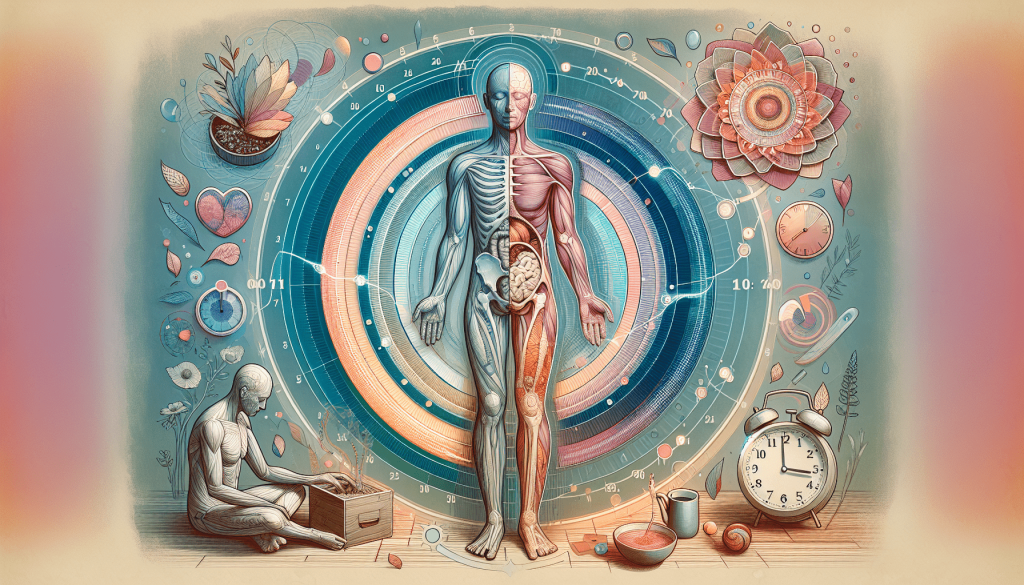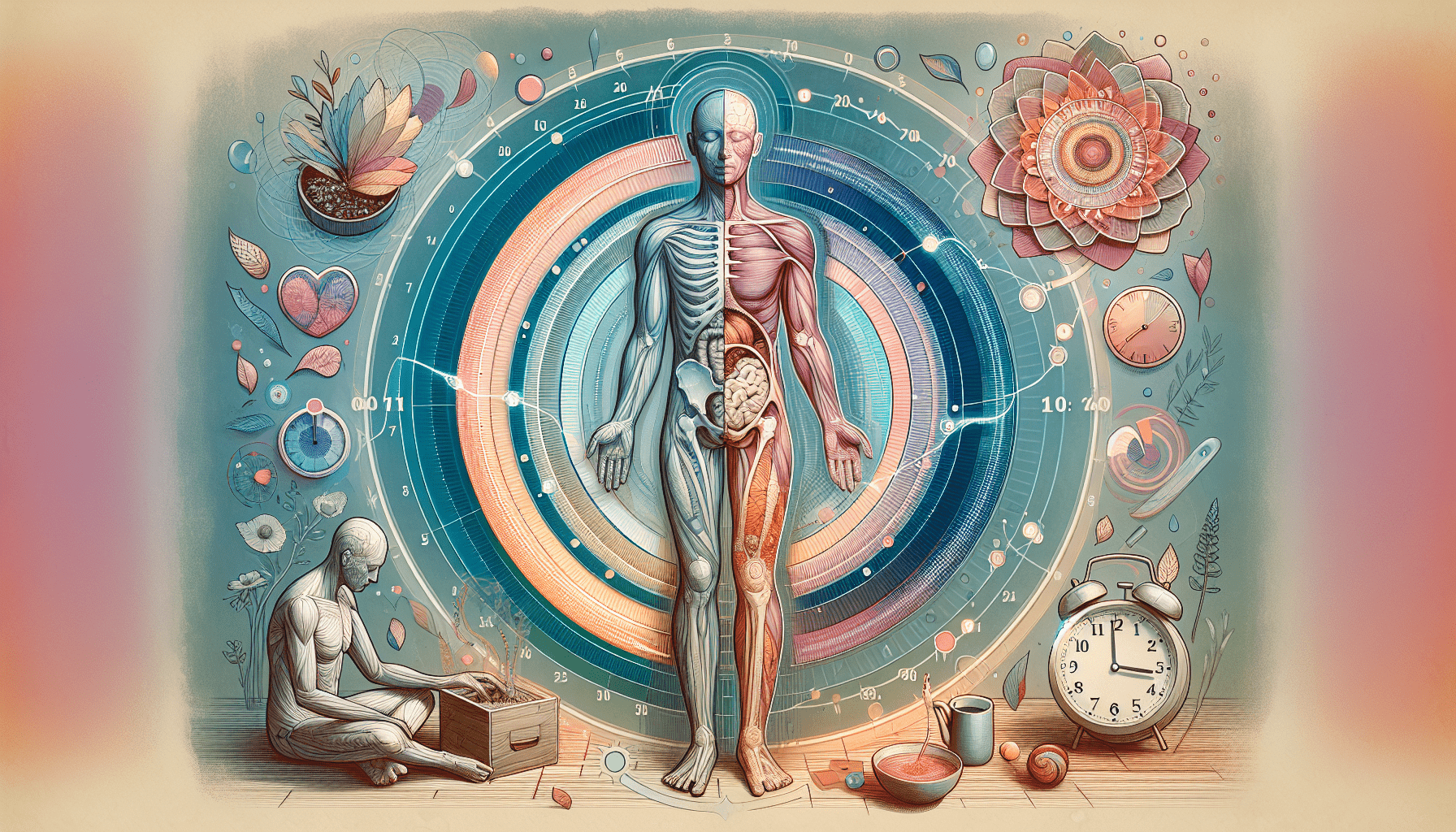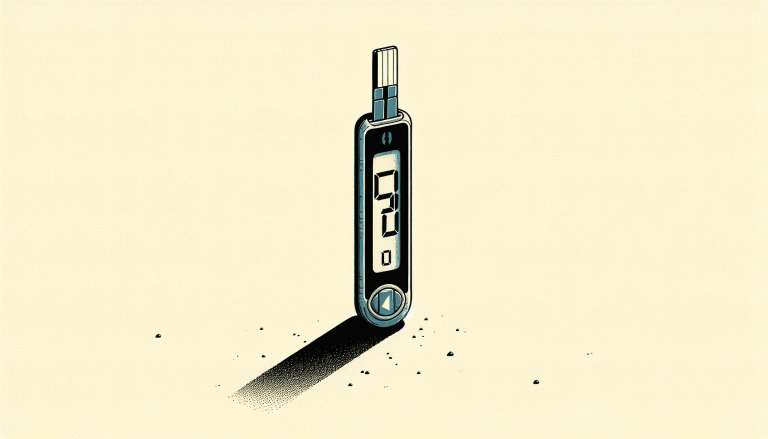How Long Does It Take The Body To Recover From Stress?
Are you wondering how long it takes for your body to bounce back from those overwhelming moments of stress? Well, the answer might surprise you! Our bodies are remarkable at adapting and recovering, and while the duration may vary from person to person, studies suggest that it typically takes around three to four days for the body to fully recover from a stress-induced state. So, take a deep breath, relax, and let us explore the amazing resilience of your body when it comes to managing stress.
Physical Effects of Stress
Effects of stress on the body
Stress can have a profound impact on the body, manifesting in various physical symptoms. When you experience stress, your body activates its natural fight-or-flight response, which triggers a surge of hormones such as cortisol and adrenaline. These hormones can have detrimental effects on your body over time.
One common physical effect of stress is muscle tension. When faced with a stressful situation, your muscles tighten as part of the body’s natural defense mechanism. This can lead to headaches, neck and back pain, and overall muscle stiffness.
Stress can also weaken your immune system, making you more susceptible to illness and infections. The constant release of stress hormones can suppress the immune response, making it harder for your body to fight off potential pathogens. As a result, you may find yourself falling ill more frequently when under chronic stress.
Impact of stress on the immune system
The immune system plays a crucial role in protecting the body from harmful invaders. However, chronic stress can impair its functioning. The release of stress hormones, such as cortisol, can suppress the production of white blood cells, which are essential for a healthy immune response.
Additionally, chronic stress can increase inflammation in the body. Inflammation is associated with a variety of health conditions, including autoimmune disorders, cardiovascular disease, and even certain types of cancer. When your immune system is compromised due to stress, it becomes more challenging for your body to combat inflammation.
Effects of stress on cardiovascular health
Stress can take a toll on your cardiovascular system, putting you at a higher risk for heart disease and other cardiovascular conditions. Continuous exposure to stress can lead to elevated blood pressure and increased heart rate, both of which strain the heart and blood vessels.
Furthermore, stress can contribute to the development of unhealthy habits, such as overeating or smoking, which can further harm cardiovascular health. The combination of physiological and behavioral factors can increase the risk of heart attacks, strokes, and other cardiovascular events.
Factors Affecting Recovery Time
Intensity and duration of stress
The intensity and duration of the stress you experience play a significant role in how long it takes your body to recover. Acute stress, which is short-term and often triggered by a specific event, typically resolves itself within a relatively short period. On the other hand, chronic stress, which persists over an extended period, may require more time and effort to recover from.
Individual differences in stress response
Every individual responds to stress in their own unique way. Some people may be more resilient and able to bounce back quickly from challenging situations, while others may struggle with prolonged recovery times. The ability to cope with stress effectively can depend on various factors, including genetic predispositions, past experiences, and overall mental and emotional well-being.
Support systems and coping mechanisms
The presence of a strong support system and healthy coping mechanisms can greatly influence your recovery time from stress. Having family, friends, or professionals who provide emotional support and guidance can make a significant difference in overcoming stress. Additionally, practicing effective coping mechanisms, such as engaging in hobbies, practicing mindfulness, or seeking therapy, can expedite the recovery process.

Acute vs. Chronic Stress
Difference between acute and chronic stress
Acute stress refers to short-term, intense stress that is often a response to a specific event or situation. It is typically a temporary state and activates the body’s fight-or-flight response. Examples of acute stress include giving a presentation, taking an exam, or narrowly avoiding an accident.
In contrast, chronic stress is long-term and persists over an extended period, often months or even years. It can result from ongoing issues like a challenging job, financial instability, or dealing with a chronic illness. Chronic stress can significantly impact physical and mental health and requires dedicated efforts to recover from.
Recovery time for acute stress
Recovery from acute stress varies from person to person and depends on several factors. In general, acute stress can resolve relatively quickly once the triggering event has passed. For some individuals, the recovery time may be a matter of hours or days, while for others, it may take a bit longer.
It’s important to note that while acute stress may resolve quickly, it doesn’t mean that the impact of the stressor disappears entirely. It’s essential to engage in self-care and stress management techniques to minimize any lingering effects and promote overall well-being.
Recovery time for chronic stress
Recovery from chronic stress is a more complex process due to its prolonged nature. Overcoming chronic stress requires a comprehensive approach that addresses both the physical and psychological aspects of stress. Depending on the individual and the severity of the stress, recovery from chronic stress can take weeks, months, or even years.
It is crucial to seek professional help and develop sustainable coping strategies to effectively recover from chronic stress. Implementing lifestyle changes, such as prioritizing self-care, engaging in regular exercise, and practicing stress reduction techniques, can greatly assist in the recovery process.
Recovery Time for Different Stressors
Physical stressors
Physical stressors, such as injuries, surgeries, or chronic pain conditions, can significantly impact a person’s overall well-being and recovery time. Recovery from physical stressors varies based on the specific condition or injury, the individual’s overall health, and their adherence to recommended treatment plans. In general, recovery from physical stressors can range from weeks to months, depending on the severity and complexity of the situation.
Emotional stressors
Emotional stressors, such as the loss of a loved one, a traumatic event, or relationship issues, can take a toll on mental and emotional health. Recovery time from emotional stressors is highly individualized and depends on various factors, including the individual’s support system, coping mechanisms, and access to professional help. Some individuals may recover within months, while others may require more extended periods to fully heal.
Environmental stressors
Environmental stressors encompass factors such as noise pollution, pollution, overcrowding, or extreme weather conditions. The recovery time from environmental stressors can vary based on the individual’s ability to adapt and cope with these external factors. Building resilience and implementing stress-reducing strategies can help individuals recover more effectively from environmental stressors.
Work-related stressors
Work-related stress is prevalent in today’s fast-paced and demanding professional environments. Recovering from work-related stress is crucial to maintain overall well-being and prevent burnout. The recovery time for work-related stress depends on various factors, including the availability of support at the workplace, effective time management, and the individual’s ability to set boundaries. Engaging in stress-reducing activities outside of work and seeking professional guidance when necessary can expedite recovery.

Recovery Techniques and Strategies
Physical self-care
Physical self-care involves taking care of your body to promote well-being and aid in stress recovery. Engaging in regular exercise, maintaining a balanced diet, getting sufficient sleep, and practicing relaxation techniques can contribute to physical self-care. These activities help reduce tension, improve cardiovascular health, and boost overall resilience to stress.
Mental and emotional self-care
Mental and emotional self-care focuses on nurturing your mental and emotional well-being. This can involve engaging in activities that you find enjoyable and fulfilling, such as spending time with loved ones, pursuing hobbies, or practicing mindfulness and meditation. Taking breaks, setting boundaries, and seeking therapy or counseling when needed are also essential components of mental and emotional self-care.
Relaxation and stress reduction techniques
Relaxation and stress reduction techniques play a vital role in recovering from stress. These techniques can include deep breathing exercises, progressive muscle relaxation, yoga, journaling, and engaging in creative outlets. By incorporating these techniques into your daily routine, you can promote relaxation, reduce stress levels, and enhance overall well-being.
Role of Sleep in Stress Recovery
Impact of sleep deprivation on stress recovery
Sleep deprivation can significantly impede stress recovery. Lack of sleep can exacerbate stress and make it more challenging to cope with daily challenges. When you’re sleep-deprived, your body’s ability to regulate stress hormones and inflammation is compromised, leading to prolonged recovery times. It is vital to prioritize sleep and establish healthy sleep habits to aid in stress recovery.
Recommended sleep duration for stress recovery
The recommended sleep duration for stress recovery ranges from 7-9 hours for adults. However, individual sleep needs can vary. Pay attention to your own sleep patterns and aim to create a consistent sleep schedule. It’s essential to create a sleep-friendly environment, limit exposure to electronic devices before bed, and practice relaxation techniques to promote quality sleep and enhance stress recovery.

Nutrition and Stress Recovery
Effects of stress on appetite and nutrition
Stress can affect both appetite and nutrition. Some individuals may experience increased food cravings and emotional eating when stressed, leading to unhealthy eating habits. On the other hand, some individuals may have a decreased appetite and unintentional weight loss due to chronic stress. These fluctuations in appetite can result in poor nutrition and hinder the body’s ability to recover from stress.
Foods to support stress recovery
Incorporating a balanced and nutritious diet can positively impact stress recovery. Foods rich in antioxidants, such as fruits and vegetables, can help combat the oxidative stress induced by chronic stress. Additionally, consuming whole grains, lean proteins, and healthy fats can provide essential nutrients for energy production and support overall well-being. Avoiding excessive caffeine and sugary foods can also contribute to a healthier stress recovery process.
Exercise and Stress Recovery
Benefits of exercise for stress recovery
Engaging in regular exercise has numerous benefits for stress recovery. Physical activity stimulates the release of endorphins, which are natural mood boosters, helping to reduce stress and improve overall well-being. Exercise also promotes better sleep, increases energy levels, and provides a healthy outlet for releasing tension and anxiety. Incorporating activities such as walking, jogging, yoga, or team sports into your routine can aid in stress recovery.
Recommended exercise duration and intensity
The recommended exercise duration and intensity for stress recovery vary depending on individual fitness levels and preferences. Aim for at least 150 minutes of moderate-intensity aerobic exercise or 75 minutes of vigorous aerobic exercise per week. Additionally, incorporating strength training exercises two or more days a week can provide further benefits. It’s important to listen to your body and gradually increase exercise intensity to avoid overexertion.

Professional Help for Stress Recovery
When to seek professional help
While self-care strategies can be effective for stress recovery, there are instances when it’s crucial to seek professional help. If stress symptoms persist or worsen over time, interfering with daily functioning and overall well-being, it may be time to consult with a healthcare professional, therapist, or counselor. These professionals can provide guidance, support, and evidence-based interventions to facilitate stress recovery.
Types of professionals who can assist with stress recovery
There are various professionals who specialize in stress management and recovery. Mental health professionals, including psychologists and psychiatrists, can provide therapy, diagnose any underlying mental health conditions, and prescribe medication if necessary. Additionally, counselors and therapists who specialize in stress management techniques can offer valuable insights and coping strategies. Seeking support from these professionals can be instrumental in the stress recovery process.
Long-Term Strategies for Stress Management
Building resilience to future stress
Building resilience is an important long-term strategy for managing stress. Resilience involves developing the ability to adapt and bounce back from challenging situations. By cultivating healthy coping mechanisms, practicing self-care, and seeking support when needed, you can enhance your resilience and better handle future stressors.
Developing healthy coping mechanisms
Developing healthy coping mechanisms is essential for long-term stress management. This can involve engaging in activities such as meditation, deep breathing exercises, journaling, or seeking therapy. It’s important to find coping mechanisms that work best for you and to incorporate them into your daily routine. Additionally, practicing effective time-management and setting boundaries can reduce stress levels and promote better overall well-being.
In conclusion, stress can have a significant impact on the body, affecting the immune system, cardiovascular health, and various other physical functions. The recovery time from stress depends on factors such as the intensity and duration of stress, individual differences in stress response, and the presence of support systems and coping mechanisms. Acute stress often resolves relatively quickly, while chronic stress may require extended recovery periods. Different stressors, including physical, emotional, environmental, and work-related stress, have varying recovery times. Implementing recovery techniques and strategies, such as physical and mental self-care, relaxation techniques, and prioritizing sleep and nutrition, can aid in stress recovery. Seeking professional help is crucial when necessary, and long-term strategies for stress management involve building resilience and developing healthy coping mechanisms. By taking proactive steps to manage stress and prioritize self-care, you can ultimately recover and lead a healthier, more balanced life.








